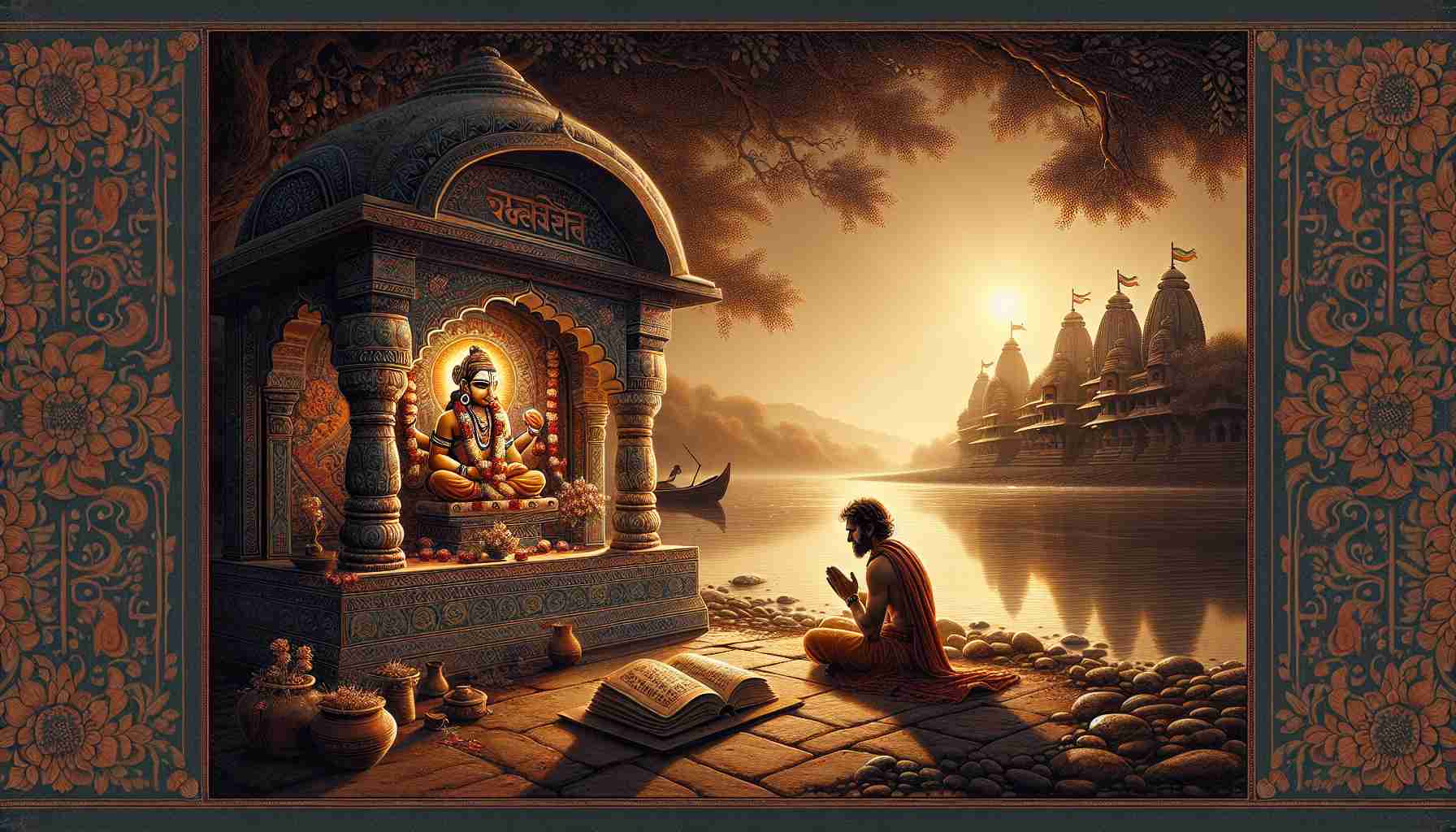

I was born in a small village just outside of Ujjain, not far from the Kshipra river. My name is Ramesh, and for most of my life, I believed I understood the rhythm of the world: you put one foot in front of the other, the road stretches out, and you keep walking.
But five years ago, that road vanished.
I had saved every rupee to start a transport supplies business. It was modest—just a truck and a warehouse space—but it was everything to me. I poured in my energy, made lists during temple aartis, prayed to Ganesha—the remover of obstacles—before every business deal. Yet somehow, everything started unraveling.
A client cheated me. My truck broke down. Then my warehouse caught fire during the monsoon storms. In four months, I lost everything.
I remember standing alone in the burnt space, smoke still lingering. The walls were blackened. My dreams—crisp papers just yesterday—had turned to ash.
For weeks, I stopped speaking much. Even at our small Ganesh mandir, I would just sit. No words. No mantras. Just breathing.
One dusty morning, I was cleaning the temple steps when an old woman came by with her grandson. The boy kept pulling at her sari, asking why Ganesha had such big ears. She said, “So He can listen. Always. Even when we don’t say anything.”
That line settled into me like warm chai.
Not long after, during a restless night, I found myself flipping through my old school Gita. It was still wrapped in the red cloth my mother gave me. My eyes landed on a verse I hadn’t noticed in years: “You have a right to your actions, but not to the fruits of those actions.” (Bhagavad Gita 2.47)
Something eased inside me. Maybe I was never meant to control the road. Maybe the road was never even straight — just bending like the Kshipra when it turns without warning.
Over the months, I began walking again. Not just in the village, but inward. I planted vegetables in our backyard, fixed neighbors’ cycles, helped at the temple. Not because it was a new business plan. Just because I felt steadier giving than grasping.
Years later, I still have no business. Or maybe I do — it just looks different. I’ve become the unofficial repair man in our area. The villagers trust me. Children call me “Mama.” My days are filled with fixing broken fans, painting old doors, quietly handing sugar to families short on ration.
I’ve learned the road never disappeared. It only lost shape for a while. Krishna, the loving teacher of the Gita, wasn’t asking me to win—He was asking me to walk with faith.
The Kena Upanishad says, "That which cannot be seen by the eye, but by which the eye sees... know That to be Brahman." I can’t see where this path ends. But I trust the One who walks it with me.
And maybe that’s enough.
I was born in a small village just outside of Ujjain, not far from the Kshipra river. My name is Ramesh, and for most of my life, I believed I understood the rhythm of the world: you put one foot in front of the other, the road stretches out, and you keep walking.
But five years ago, that road vanished.
I had saved every rupee to start a transport supplies business. It was modest—just a truck and a warehouse space—but it was everything to me. I poured in my energy, made lists during temple aartis, prayed to Ganesha—the remover of obstacles—before every business deal. Yet somehow, everything started unraveling.
A client cheated me. My truck broke down. Then my warehouse caught fire during the monsoon storms. In four months, I lost everything.
I remember standing alone in the burnt space, smoke still lingering. The walls were blackened. My dreams—crisp papers just yesterday—had turned to ash.
For weeks, I stopped speaking much. Even at our small Ganesh mandir, I would just sit. No words. No mantras. Just breathing.
One dusty morning, I was cleaning the temple steps when an old woman came by with her grandson. The boy kept pulling at her sari, asking why Ganesha had such big ears. She said, “So He can listen. Always. Even when we don’t say anything.”
That line settled into me like warm chai.
Not long after, during a restless night, I found myself flipping through my old school Gita. It was still wrapped in the red cloth my mother gave me. My eyes landed on a verse I hadn’t noticed in years: “You have a right to your actions, but not to the fruits of those actions.” (Bhagavad Gita 2.47)
Something eased inside me. Maybe I was never meant to control the road. Maybe the road was never even straight — just bending like the Kshipra when it turns without warning.
Over the months, I began walking again. Not just in the village, but inward. I planted vegetables in our backyard, fixed neighbors’ cycles, helped at the temple. Not because it was a new business plan. Just because I felt steadier giving than grasping.
Years later, I still have no business. Or maybe I do — it just looks different. I’ve become the unofficial repair man in our area. The villagers trust me. Children call me “Mama.” My days are filled with fixing broken fans, painting old doors, quietly handing sugar to families short on ration.
I’ve learned the road never disappeared. It only lost shape for a while. Krishna, the loving teacher of the Gita, wasn’t asking me to win—He was asking me to walk with faith.
The Kena Upanishad says, "That which cannot be seen by the eye, but by which the eye sees... know That to be Brahman." I can’t see where this path ends. But I trust the One who walks it with me.
And maybe that’s enough.